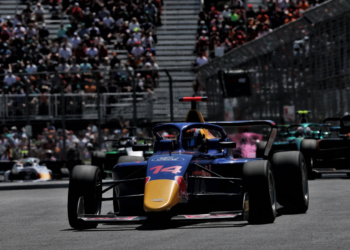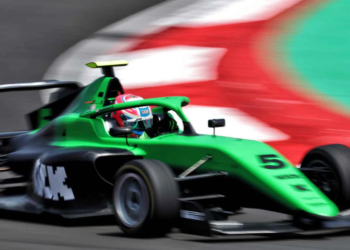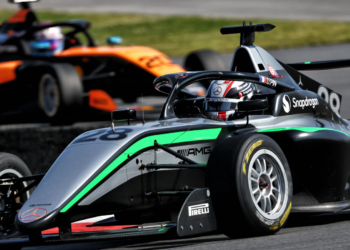F1 Academy is breaking new ground by empowering women in a space where they’ve historically been underrepresented: motorsports. It’s all about giving women the tools, opportunities, and visibility they need to excel in the exhilarating world of Formula 1 racing. This initiative is not just changing the game; it’s inspiring a whole new generation of female racers to take the wheel and drive towards success.
For students exploring gender dynamics in sports or writing papers on the subject, ensuring their work is original and credible is key. Many opt for services that guarantee to ‘write my essay no plagiarism‘ to maintain academic integrity while delving into such impactful topics. You can use this article for some ideas, too. Let’s explore the role F1 Academy plays in shaping the future of women in racing.
The Foundation of F1 Academy
F1 Academy was established with a clear vision: to address the glaring gender disparities within the motorsport world and to nurture the next generation of female racers. Recognising the need for a dedicated platform to support women in this competitive field, F1 Academy aims to provide comprehensive training and development opportunities tailored specifically for women.
Goals and objectives of F1 Academy:
- To increase the visibility of women in motorsports both on and off the track.
- To provide rigorous technical and physical training that prepares women for high-level competition.
- To collaborate with teams and sponsors to ensure opportunities for women in competitive racing roles.
- To challenge and change the cultural perceptions of gender roles within the motorsports community.
- To conduct outreach and education programs that inspire young women to consider careers in motorsports.
Barriers for women in motorsports
Despite growing interest and participation, women in motorsport still face significant barriers that hinder their progress and visibility in the field. These challenges are deeply embedded within both the culture of motorsports and the broader societal expectations about gender roles:
- Women often struggle to secure the necessary financial backing needed to compete at higher levels, as sponsors traditionally invest more readily in male drivers.
- The motorsports industry is tightly knit, and breaking into established networks is often more challenging for women, limiting their career advancement opportunities.
- Persistent stereotypes about women’s roles and capabilities in motorsport often discourage participation and can affect performance and team dynamics.
- With few women in decision-making positions, it’s challenging to advocate for changes that would benefit women in the sport.
- The scarcity of prominent female figures in motorsport means fewer mentors for aspiring drivers and fewer examples of success.

Training and development programmes
F1 Academy has rolled out several bespoke training modules that focus on both the physical and technical aspects of racing. High-intensity driver training, mechanical workshops, and strategy sessions are routine, ensuring that participants are well-rounded in all facets of the sport.
Moreover, F1 Academy places a strong emphasis on resilience and mental fortitude. Participants undergo psychological training and stress management courses to help them cope with the intense demands of professional racing, preparing them for the challenges they will face on and off the track.
Mentorship and support networks
One of the core strengths of F1 Academy is its robust mentorship program, which connects participants with seasoned professionals from various aspects of motorsports. These mentors provide guidance, career advice, and emotional support, helping young racers navigate the complexities of the sport. This one-on-one support is vital for personal and professional growth, empowering women with the knowledge and confidence required to succeed.
Beyond individual mentorship, F1 Academy fosters a strong community among participants and alumni, creating a network of support and camaraderie. This community acts as a powerful resource for graduates of the program, offering ongoing support as they advance in their careers.

Challenges of the programme
Despite its success, F1 Academy faces its set of challenges. Funding remains a constant issue, as the programme relies heavily on sponsors who are willing to invest in female racers. Securing consistent financial support is crucial for the sustainability of F1 Academy and for offering equal training opportunities to all participants.
Additionally, cultural resistance within the broader motorsports community can sometimes slow the progress toward gender equality. Changing deep-seated beliefs and practices takes time, and the Academy must continually work to advocate for its mission.
The future of women in motorsport
The future looks promising for women in motorsport, thanks in part to the groundwork laid by initiatives like F1 Academy. The industry’s perception of women in motorsport continues to evolve. The increasing success of female racers on international platforms is not only inspiring but is also gradually shifting sponsor interests and media attention toward women.
As the momentum continues, the hope is that the next generation of women in motorsport will face fewer barriers and have greater opportunities for career development. With sustained support and dedication, F1 Academy aims to not just participate in but lead the charge towards a more inclusive and equitable motorsport environment.
Conclusion
The journey of F1 Academy highlights both the challenges and triumphs of integrating women into motorsport. By focusing on comprehensive training, mentorship, and advocacy, F1 Academy empowers its participants and paves the way for a more diverse and inclusive future in racing. As the community and industry continue to support and expand such initiatives, the potential for women in motorsports looks brighter than ever.







